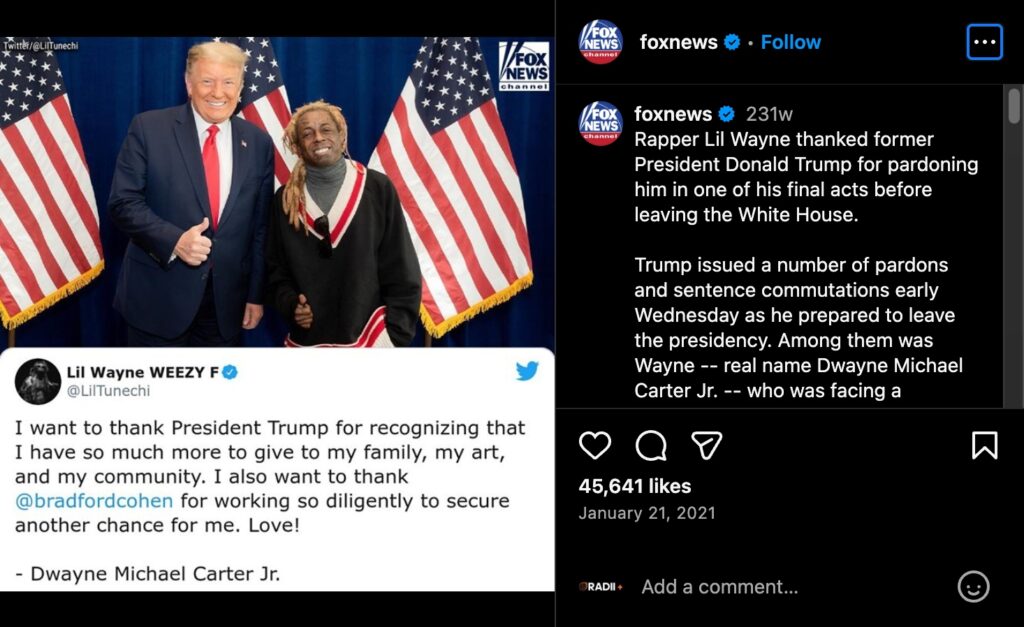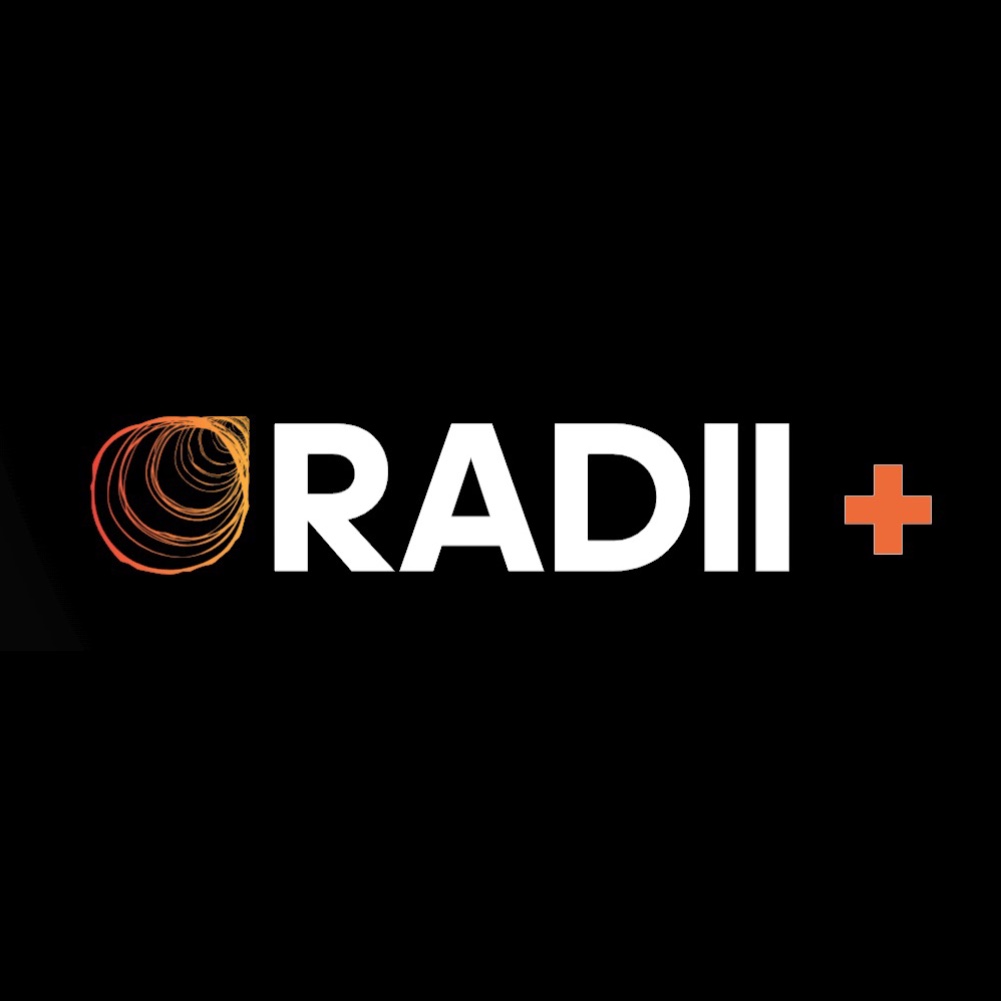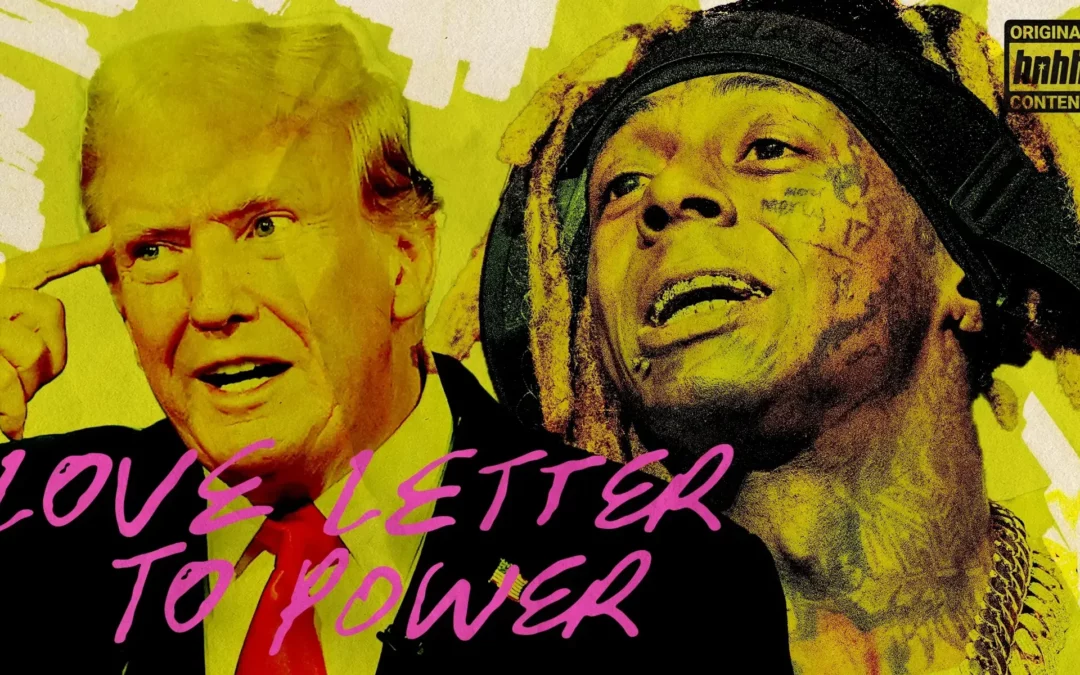A poetic history of Lil Wayne’s references to Donald Trump, from metaphor to flex to picture op.
It’s the photo that will live in infamy. Lil Wayne’s name has long been associated with Donald Trump, first in music and later in politics. As Trump leads the United States into an intensifying battle with Israel and Iran, more than just headlines are needed. For years, Trump professed to be anti-war, pro-America, and uninterested about global conflicts. Nonetheless, he has been condemned for ICE raids, purported racist dog whistles, travel bans, and power plays that have been obvious to anybody who looks. Now, as global stakes mount, the discourse shifts back to individuals who once identified with his image. In Hip Hop, that list includes Lil Wayne.
Wayne did not simply endorse Trump with a photo. He appeared beaming days before the 2020 election, promising his support in exchange for what would become a federal pardon. For some, it was a transactional decision. Others consider it a betrayal. Nonetheless, that was not an isolated flash. It was the finale. Trump has been living in Wayne’s verses for several years. It is sometimes used as a symbol of wealth. Sometimes used as a metaphor for power. Always invoked and unchallenged.
A post shared by Fox News (@foxnews)

This was not an example of politics infiltrating Hip Hop. Hip Hop’s aspirational rhetoric collided with a man who knew how to position himself as money personified. Wayne, like many others, mentioned Trump before he arrived at the White House. What distinguishes his pattern is how quickly the metaphor became real. While the world was protesting police brutality, Wayne publicly disregarded Black Lives Matter. As families were torn apart by Trump’s immigration crackdowns, Wayne spoke of him casually. When the world expected artists to take a stand, he sat next to the President.
The verses arrived before the photo opportunity. The photo opportunity came before the pardon. And now, as Trump escalates a global confrontation he once pledged to avoid, those early remarks gain fresh significance. It’s not about deciphering Wayne’s political views or rehashing the photo with Trump. What it does provide is a map of the allusions that led up to that image, because in Rap, words are rarely wasted. When some names reoccur, it’s worth considering what they truly represent.
This was not Wayne’s track, but he didn’t have to own it to sign it. “Ball,” a song off T.I.’s Trouble Man: Heavy Is the Head, showcased Lil Wayne at his loosest, with an unfettered flow, New Orleans bounce, and a verse that ricocheted off the beat. Wayne lets loose in the middle of his lyric, saying, “I’ma fire my blunt like Donald Trump.” It’s a line delivered quickly and haphazardly, with little reverence and much less regard. Trump had already been mythologized in rap for decades. It’s 2012. Trump has already made comments concerning Obama’s birth certificate. Wayne remains unconcerned as a political tempest brews. He uses the name in the same way that he has always used basic materials.
Wayne’s mixtape rhythm features a sample-driven track that demands sparkle in each phrase. Midway through the roll through, he exclaims, “Get money like Donald Trump, double barrel on that pump.” In this argument, Trump is not a façade of legacy or business branding. He’s shorthand for the culture of accumulation, which revolves around currency. Wayne associates that image with power, and “double barrel” becomes an echo of aggression and ambition. It’s a flex based on the absolute certainty that Trump = money, and Wayne is stacking.
Wayne drops “Came home from jail, they was tryna send me back, ngga / I just called my ngga Donald Trump and that was that, n*gga” is deep in “Tuxedo,” a fan-fueled track that never received an official album placement or Single limelight. It’s a phrase buried in a mixtape remix that didn’t make the charts and received little attention. He does not boast height or towers. Instead, he views Trump as a confidant, a private line rather than a public figure. Wayne uses that one-time incantation to alter Trump’s place in his universe. The controversial president has now become a friend rather than just an aspiration.
In “Life Is Good,” Wayne shouts, “Haven’t done my taxes, fcking with Trump,” a startling line against a background of hustler swagger. Releasing the collection in 2020, the same year Wayne stood with Trump as part of a cheesy display, creates an uncanny resonance. His intimate verse seeps into public view. Wayne flirts with the possibility of avoiding taxes while embracing Trump as a hasty decision. Critics and fans weren’t analyzing the reference when No Ceilings 3 was released, but in retrospect, the “Fcking with Trump” moment lingers like a ghost of pre-endorsement entanglements.
On Tha Carter, Lil Wayne’s “Get Down” never charted, was never released as a single, or received media notice. However, one of Wayne’s earliest references to Donald Trump may be found on that quiet tracklist. “Throw my weight like Sherman Klump, I gotta hold up my estate like Donald Trump,” he raps, comparing a fictitious caricature to a real-world figure associated with real estate domination. At the time, Trump was not a politician, but rather a cultural symbol of affluence and vanity.
READ MORE: Lil Wayne I’ll Be Missing You At The Super Bowl ‘Something Very Special’ Is Being Worked On Instead
Lil Wayne has made references to Donald Trump in tracks spanning several eras of prosperity and cultural strife. Each remark indicates a broader interest in power and exposure, both in politics and in hip hop. As Trump’s influence grows globally, those lyrics serve as artifacts of a time when symbolism merged with allegiance. They serve as reminders of how art may capture history even as it changes.
Step into the ultimate entertainment experience with Radii+ ! Movies, TV series, exclusive interviews, live events, music, and more—stream anytime, anywhere. Download now on various devices including iPhone, Android, smart TVs, Apple TV, Fire Stick, and more!


